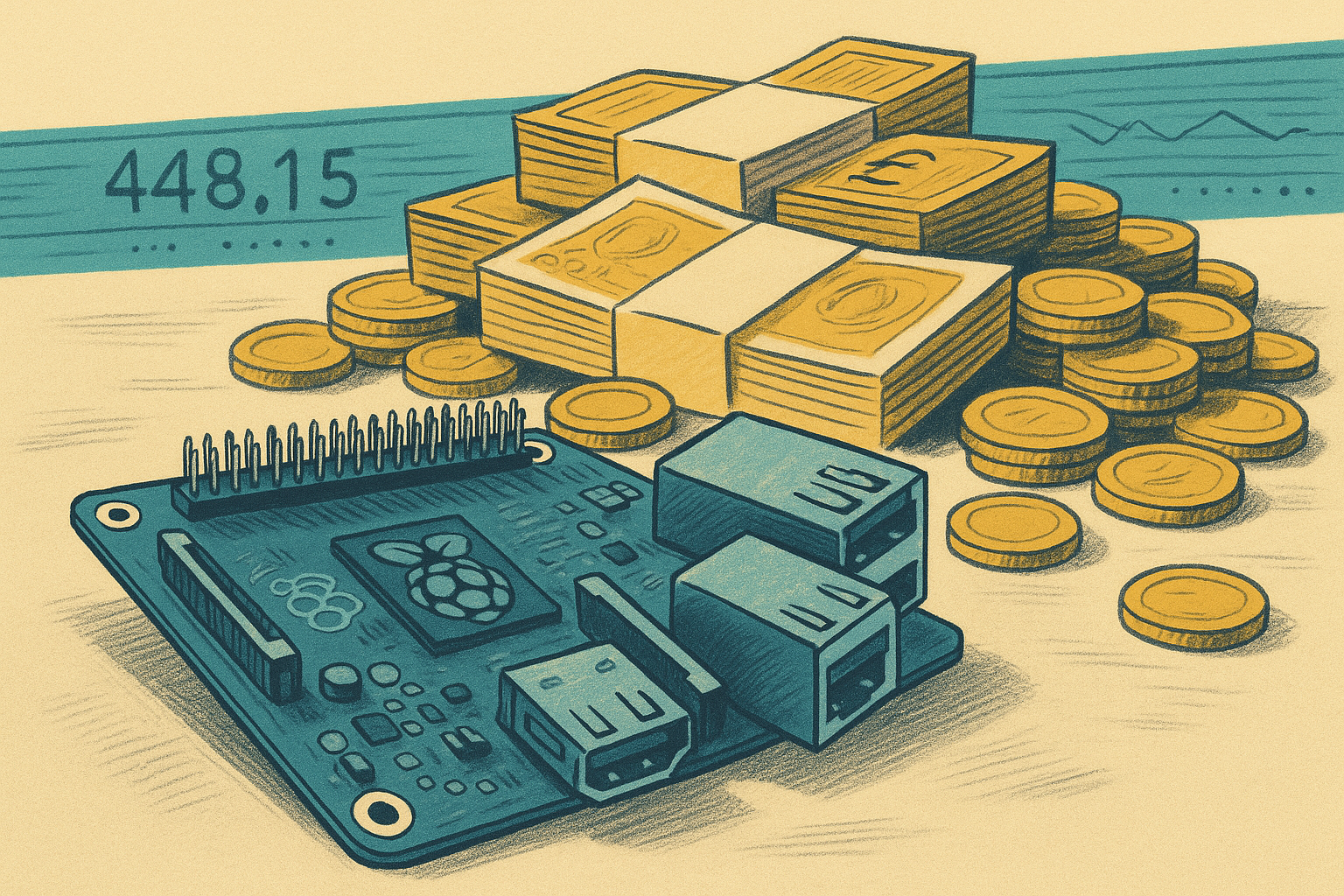Raspberry Pi founder Eben Upton has sold shares worth £1.8 million in the Cambridge-based microcomputer company, slightly reducing his holding just over a year following its well-publicised stock market debut. This transaction occurred as the 365-day lock-up period for directors and senior executives came to an end this week.
Upton, 47, who established the company in 2008, was accompanied by the company’s Chief Financial Officer, Richard Boult, who sold shares amounting to £455,000. Disclosures made to the London Stock Exchange revealed that these transactions occurred on Tuesday. Raspberry Pi confirmed these sales, explaining that both executives took these steps for financial planning reasons.
The market response was modest, with shares dropping by 14p, or 3%, to 444p on Wednesday. Though such share sales are a common occurrence following the conclusion of IPO lock-up periods, investors often perceive selling by top leaders as a potential lack of confidence in the company’s future growth prospects.
Upton’s sale represented around 14% of his shares. He continues to hold 2.5 million shares, estimated at about £11 million. Boult retains 476,000 shares, valued at just over £2 million, after divesting slightly more than a fifth of his stake.
Despite a 33% plunge in the company’s share price since the outset of 2025, early investors remain in a strong position. Raspberry Pi was listed on the stock exchange in June 2024 at 280p, marking it as London’s largest IPO in nearly a year at that time, with an initial market valuation of £541 million. Presently, the company is valued at slightly under £900 million, qualifying it for a position in the FTSE 250 index.
Raspberry Pi was created by Upton during his tenure as director of studies at St John’s College, Cambridge. Motivated by the decreasing number of computer science applicants, the company initially focused on producing low-cost, credit-card-sized computers to teach children coding. Over time, it has expanded its offerings to industrial applications, providing computing boards for use in systems such as security units, ventilation setups, and even self-service coffee machines.
Although Raspberry Pi remains committed to its educational mission, it has broadened its customer base, culminating in revenues of $259.5 million in 2024. This marked a slight decrease from the £265.8 million reported in 2023. The pre-tax profit for 2024 was $16.3 million, down from $38.2 million the previous year, attributed to “industry-wide destocking” following a surge in demand.
Upton is not the only co-founder who divested shares. His wife, Liz Upton, a co-founder and the former head of the marketing and communications team until her departure in November, sold £248,000 worth of shares last September and an additional £186,000 on New Year’s Eve.
Other directors, not subject to the same lock-up conditions, began selling shares from September 2024 onwards.
While recent share sales might unsettle some investors, Raspberry Pi endures as a reputable success story within the UK tech sector’s public market. The company has scaled while maintaining profitability, and its strategic shift towards commercial and industrial sectors augurs potential for ongoing growth.
For now, however, these share sales highlight that even the most dedicated founders eventually realise a portion of their paper wealth, particularly after a significant stock market trajectory.




